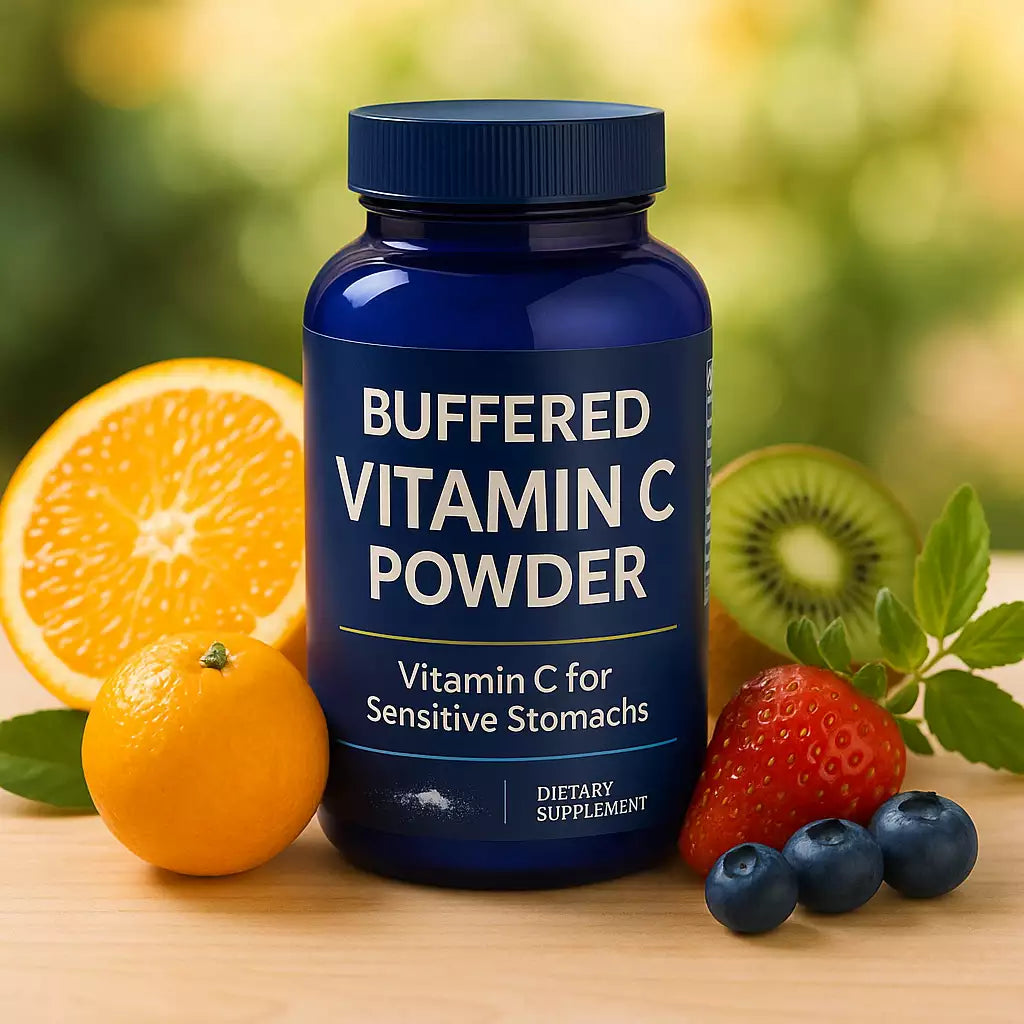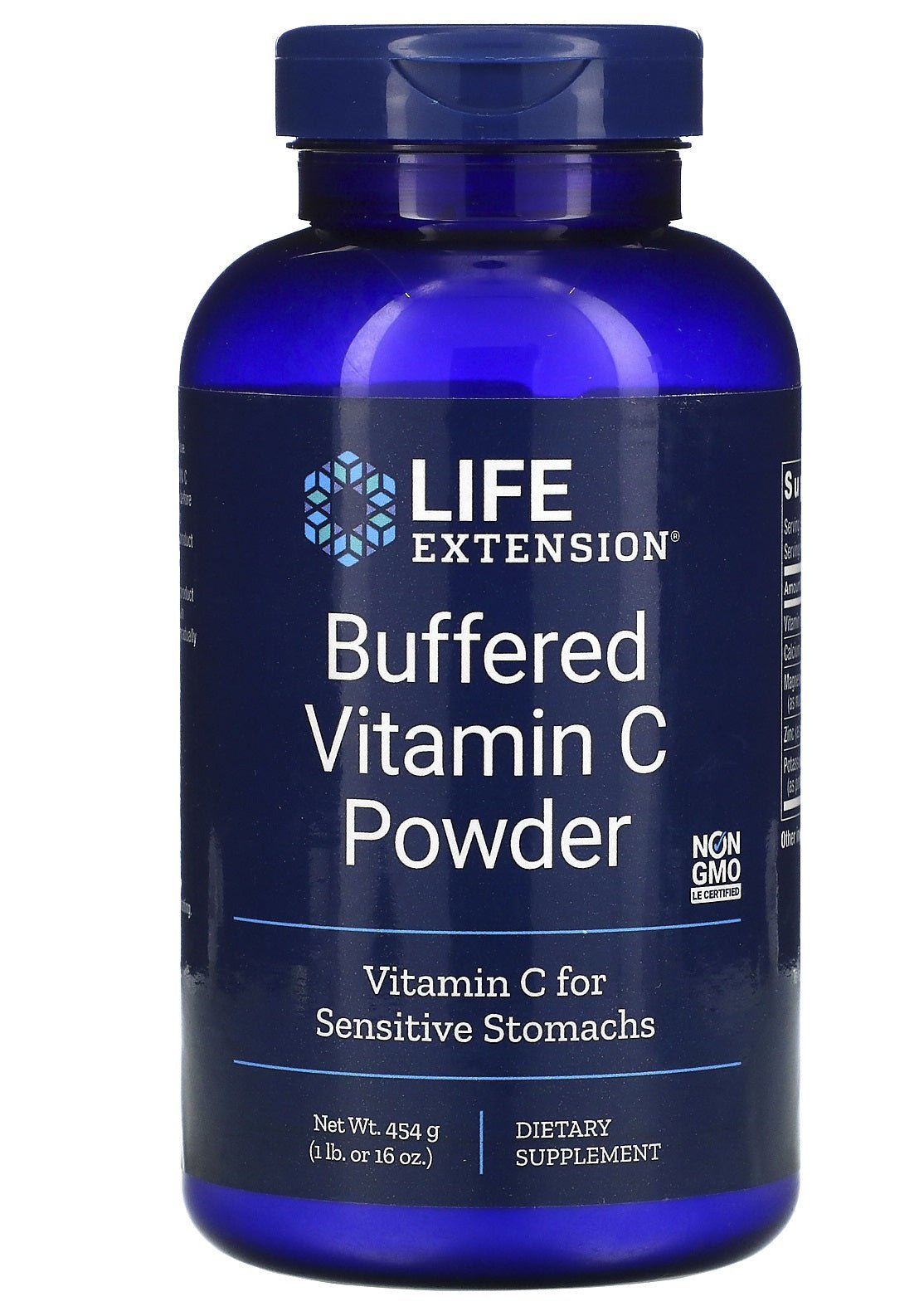Life Extension Buffered Vitamin C (454g)
Life Extension Buffered Vitamin C (454g) Black is backordered and will ship as soon as it is back in stock.
Buffered Vitamin C Powder (454g)
Summary
Buffered vitamin C powder is a dietary supplement that contains four buffer minerals in addition to ascorbic acid. This formulation provides an alkaline blend that is gentle on the gastrointestinal tract, while offering the many health benefits associated with vitamin C. The product is designed for adults who want to support the immune system, increase iron absorption, and reduce fatigue and oxidative stress.
Health benefits
- Supports the immune system: Vitamin C contributes to the normal functioning of the immune system, also during and after intense physical exercise.
- Promotes collagen formation: Contributes to normal collagen formation, which is important for blood vessels, bones, cartilage, gums, skin and teeth.
- Reduces fatigue: Vitamin C can help reduce fatigue and exhaustion.
- Increases iron absorption: Improves the absorption of iron from plant-based sources and counteracts oxidation.
- Protects against oxidative stress: Neutralizes free radicals and protects cells from damage.
- Supports psychological function: Contributes to normal energy metabolism, nervous system function and psychological well-being.
Technical details and specifications
-
Contents per serving (1 rounded teaspoon, approx. 5.4 g):
- Vitamin C (ascorbic acid): 4000 mg
- Calcium (calcium carbonate): 145 mg
- Magnesium (magnesium carbonate): 55 mg
- Zinc (zinc gluconate): 2 mg
- Potassium (potassium carbonate): 365 mg
- Other ingredients: None.
- Properties: Non-GMO, no artificial additives.
Instructions for use
Mix one rounded teaspoon of powder in water and drink daily, or as recommended by a healthcare professional. The powder gives a slightly effervescent effect when mixed with water.
Caveats and warnings
- Allowed for use by adults over 18 years of age.
- Should not be used by children and young people under the age of 18 without consulting a doctor.
- The recommended daily dose should not be exceeded.
- Dietary supplements should not replace a varied diet.
- Keep out of the reach of children.
Disclaimer
Uno Vita AS does not claim that the products we market can cure disease. The information is intended for informational purposes only and should not replace professional medical advice or treatment. All use of dietary supplements is at your own risk.
Scientific references
- "Vitamin C and Immune Function," Nutrients, 2017.
- "Ascorbic Acid in Collagen Synthesis," Journal of Dermatological Science, 2018.
- "The Role of Vitamin C in Reducing Fatigue," Clinical Nutrition, 2019.
- "Vitamin C as an Antioxidant: Mechanisms of Action," Redox Biology, 2015.
- "Iron Absorption and Vitamin C," The American Journal of Clinical Nutrition, 2013.
- "Effects of Vitamin C on Psychological Health," Psychiatry Research, 2020.
- "Oxidative Stress and Vitamin C," Free Radical Biology & Medicine, 2018.
- "The Role of Vitamin C in Energy Metabolism," Metabolic Research, 2021.
- "Vitamin C and Endothelial Health," Cardiovascular Research, 2019.
- "Nutritional Antioxidants in Cell Protection," Journal of Clinical Biochemistry, 2016.
- "Ascorbate and Neuroprotection," Neuroscience Letters, 2020.
- "Vitamin C in Wound Healing," International Wound Journal, 2017.









